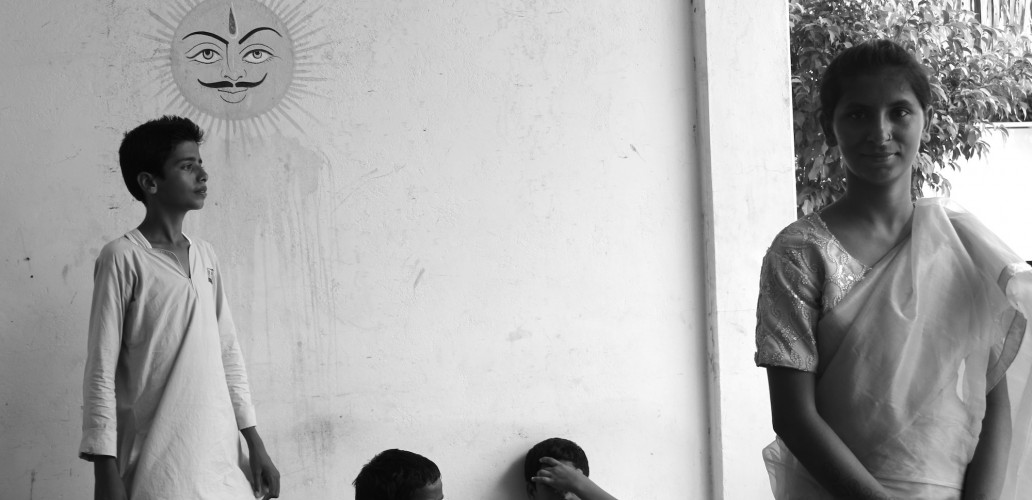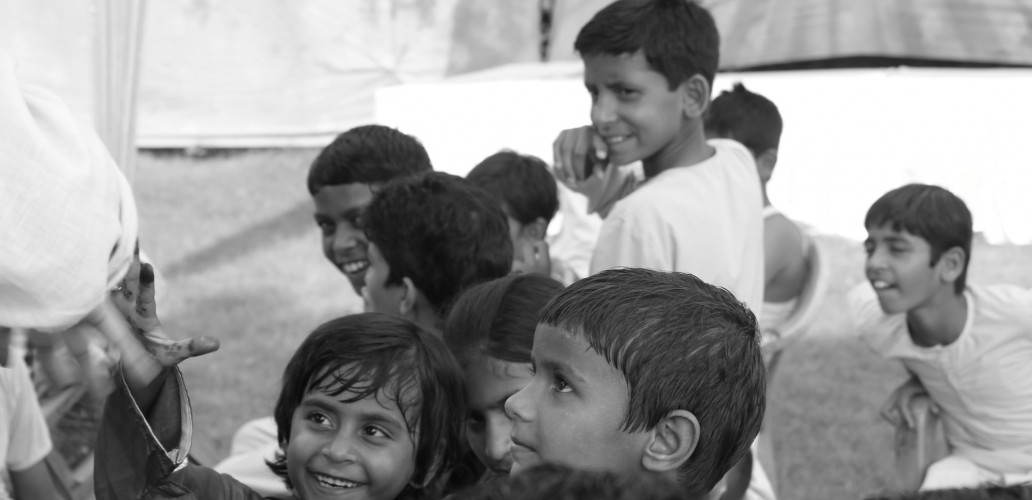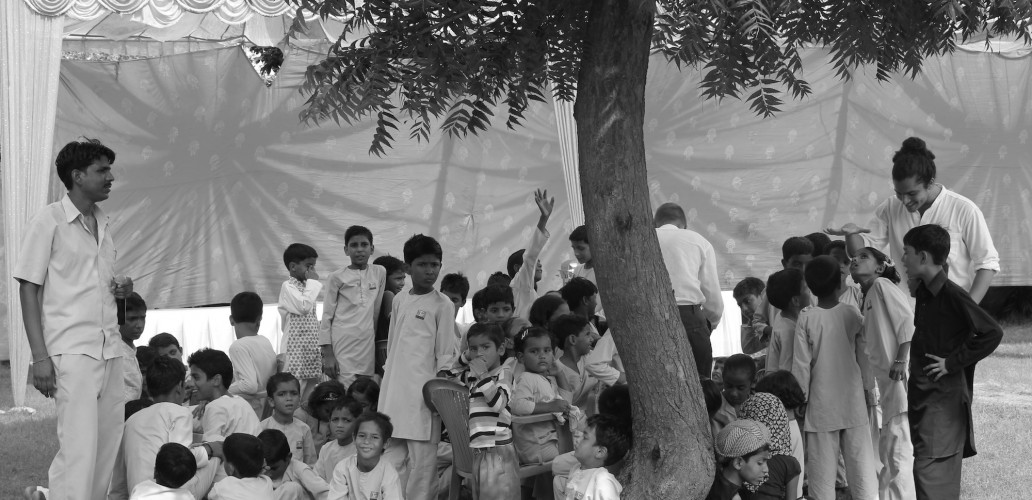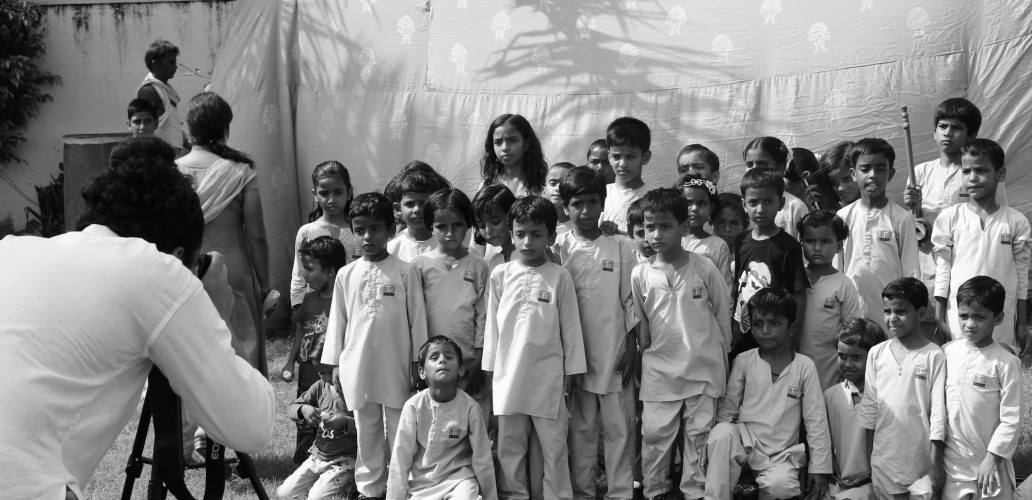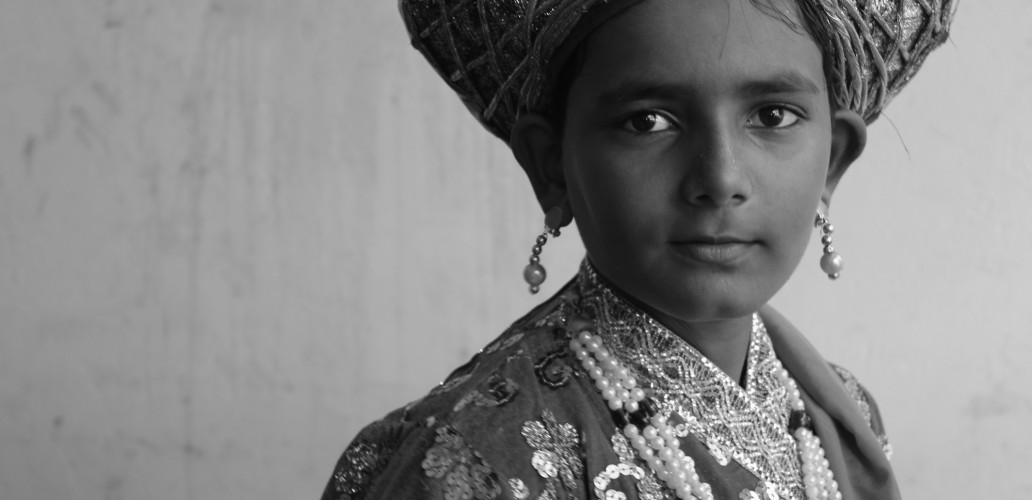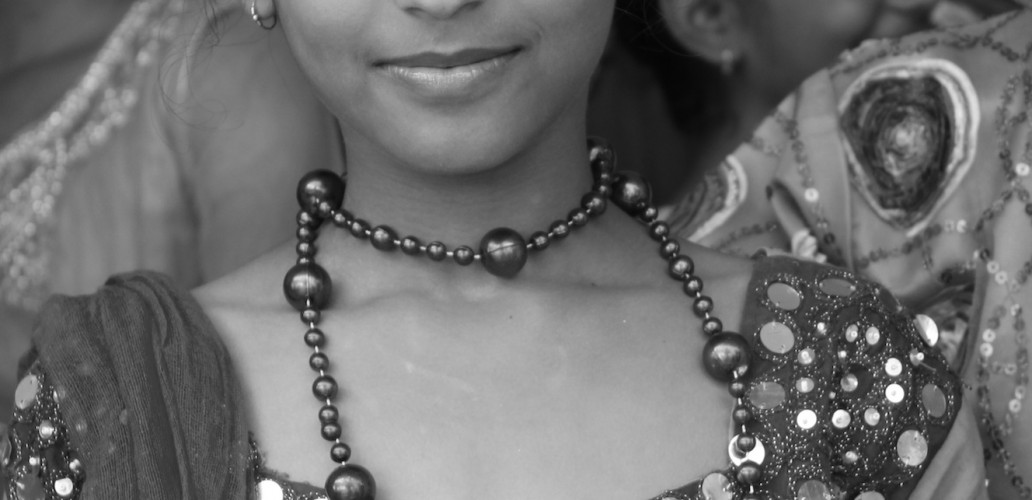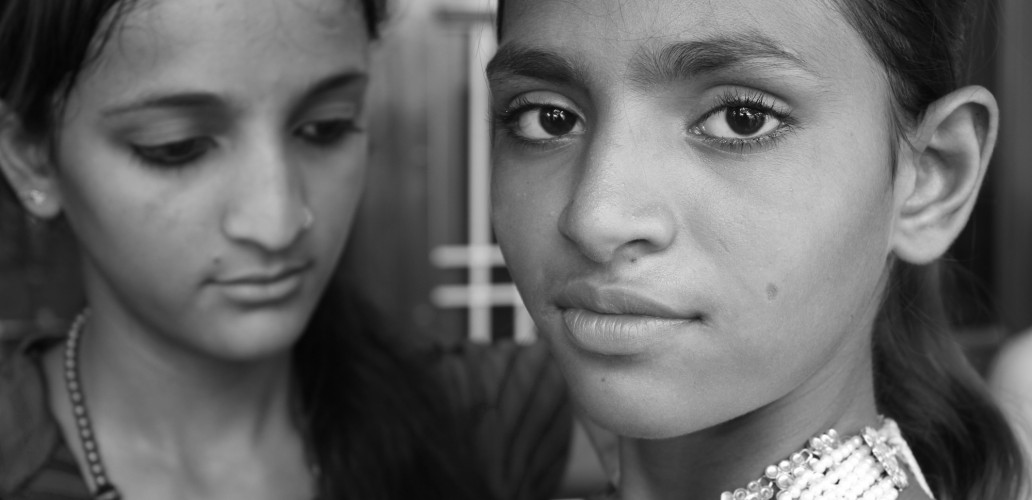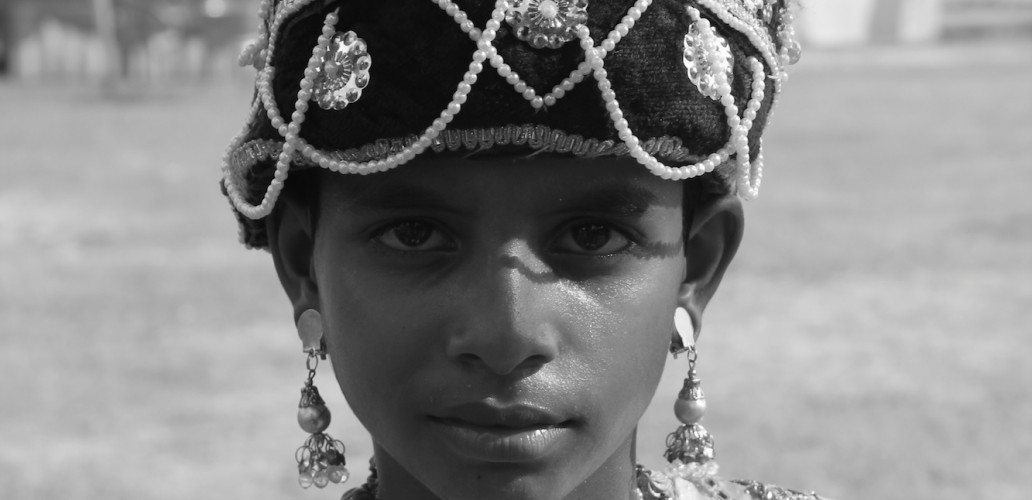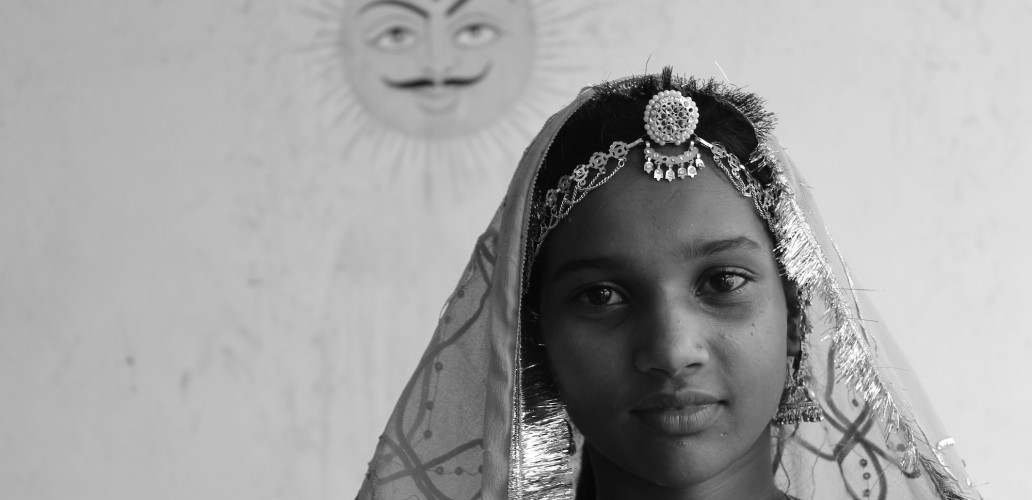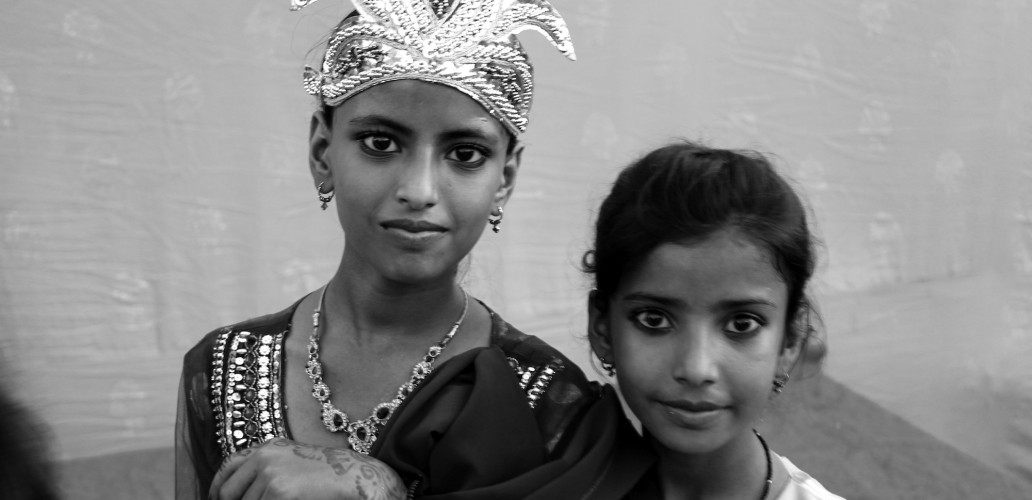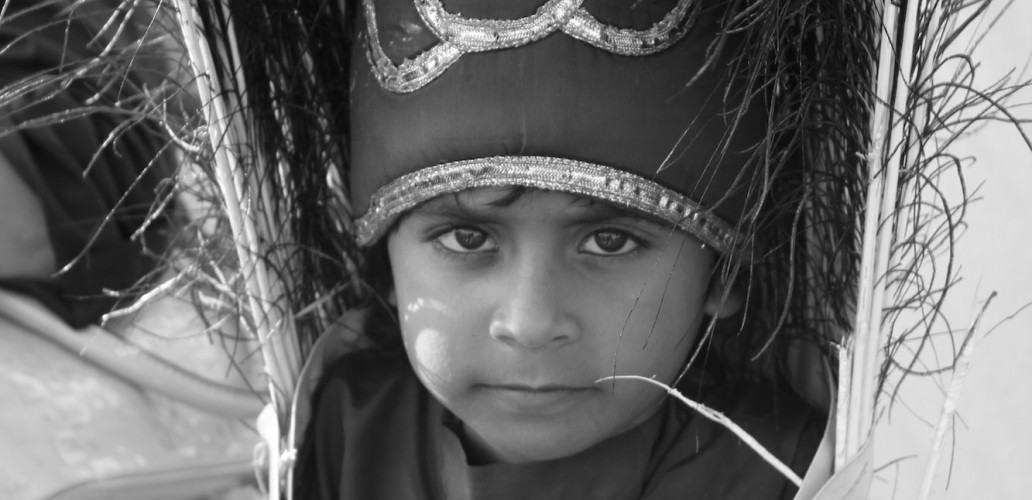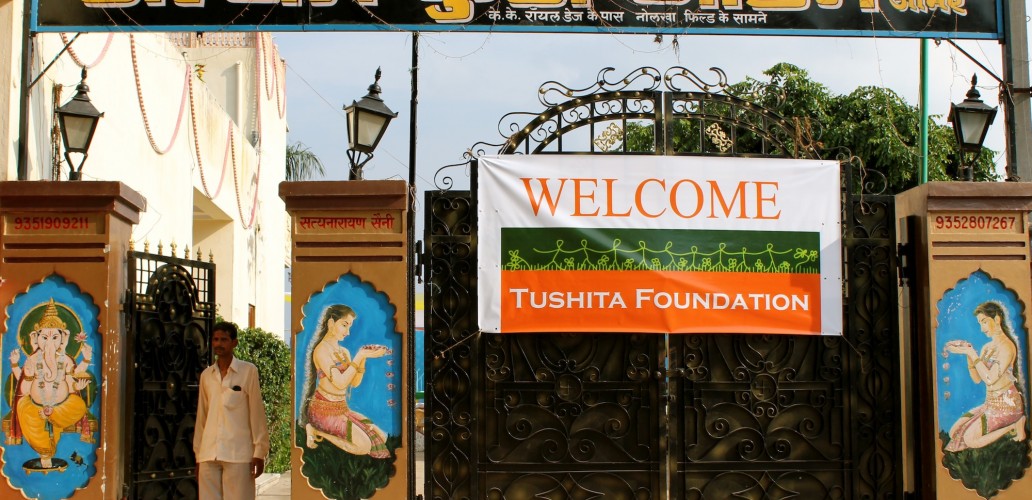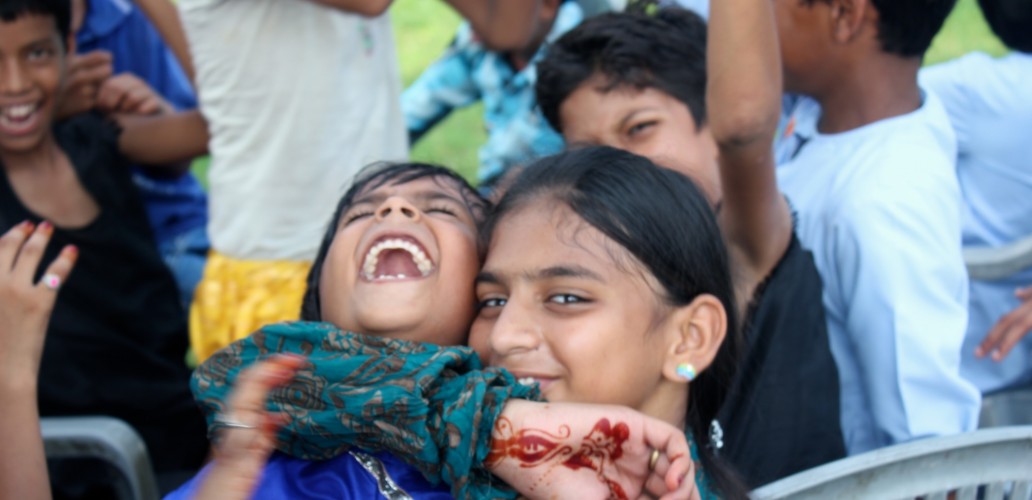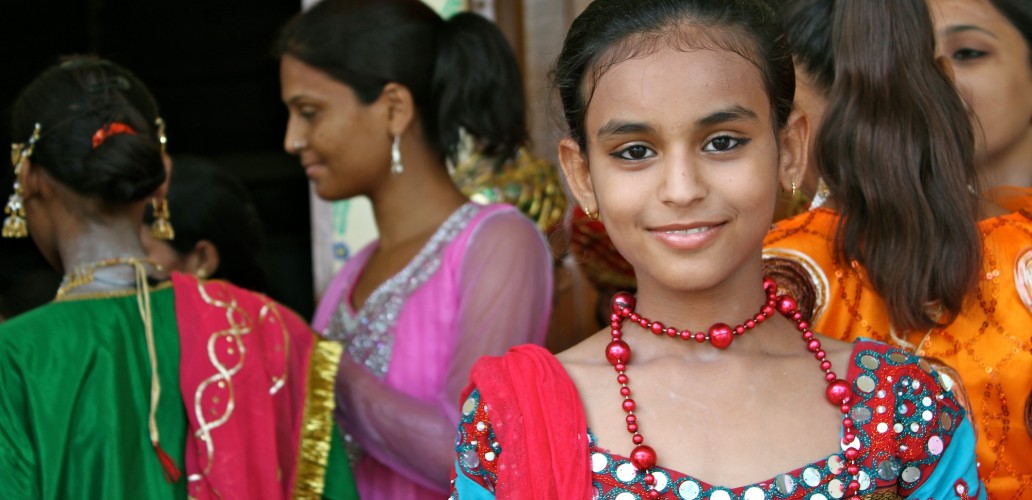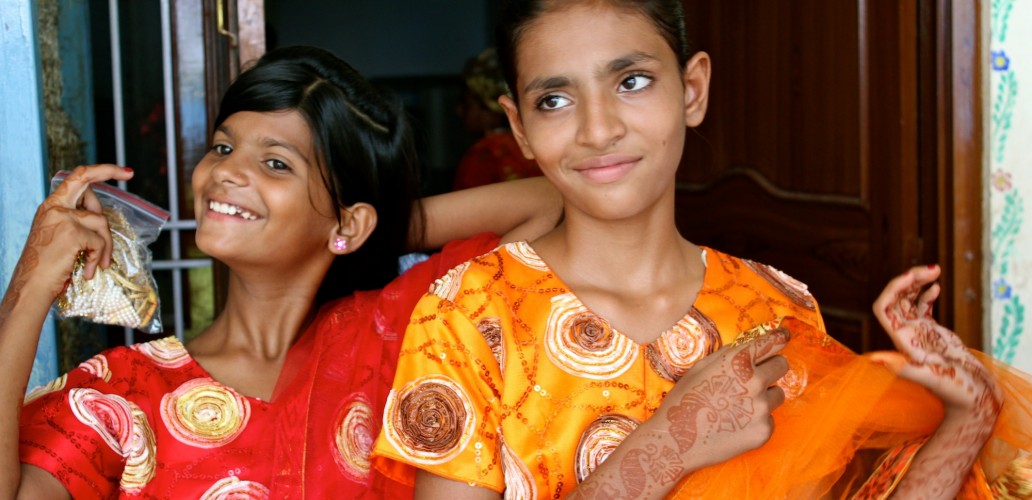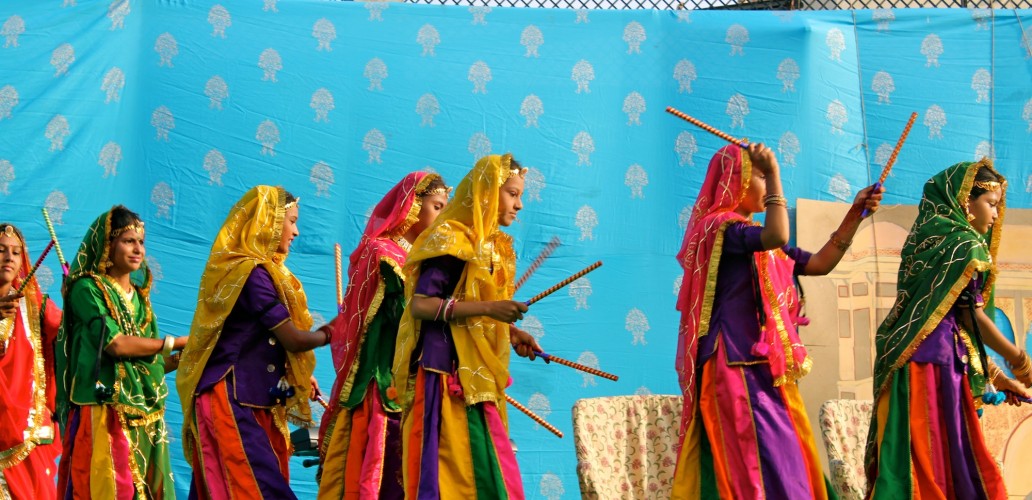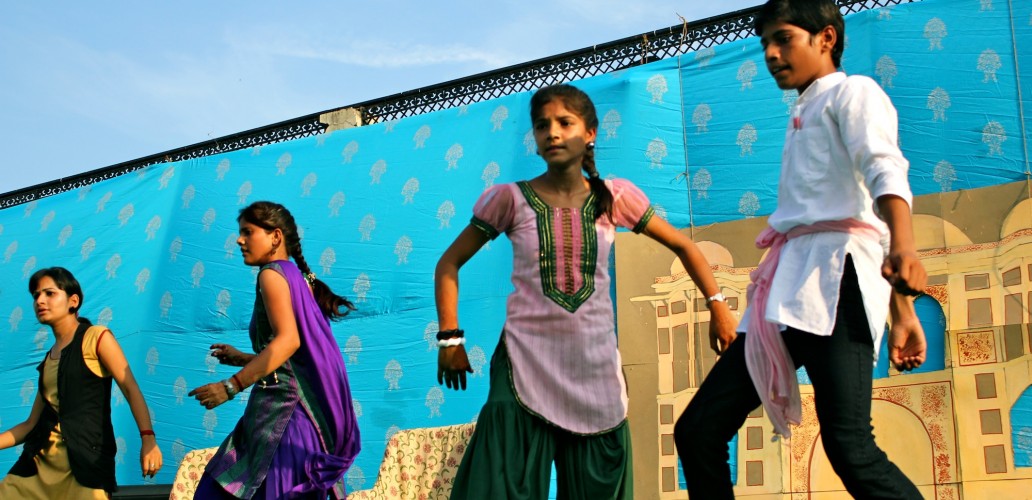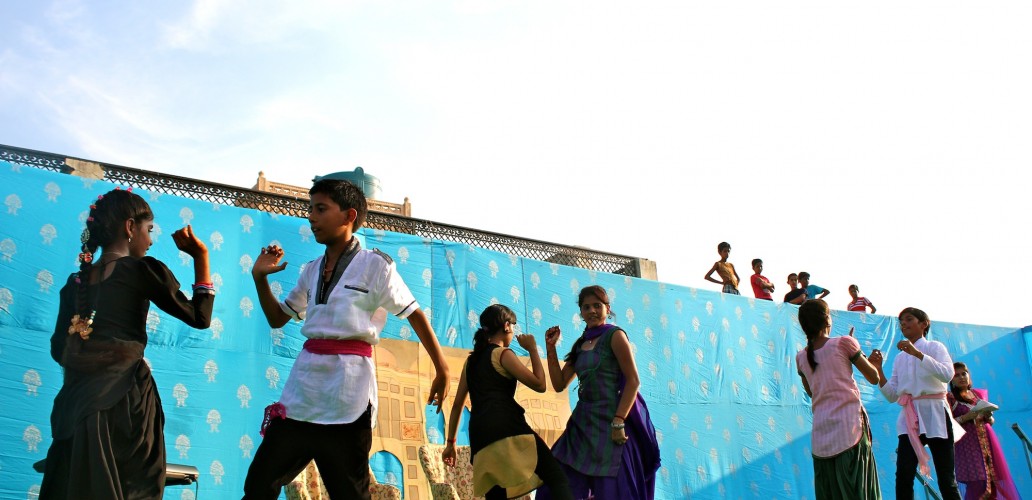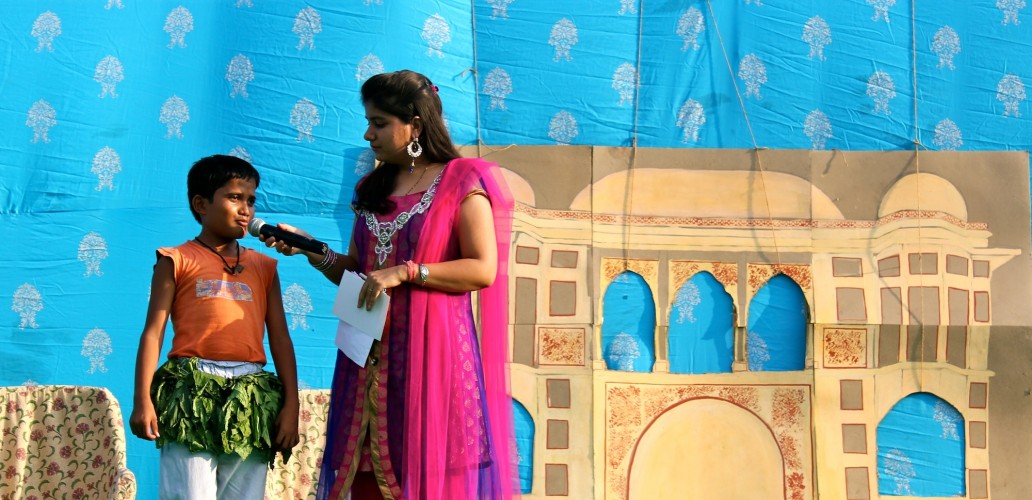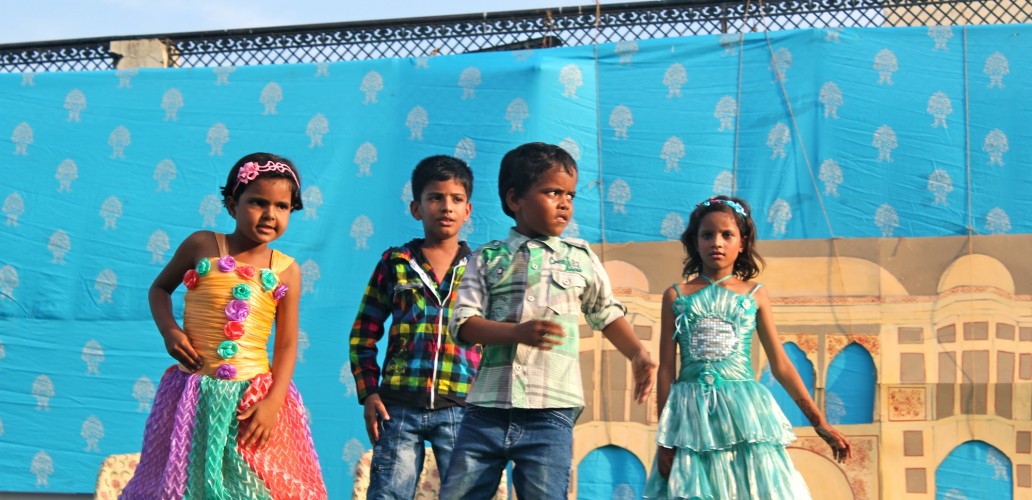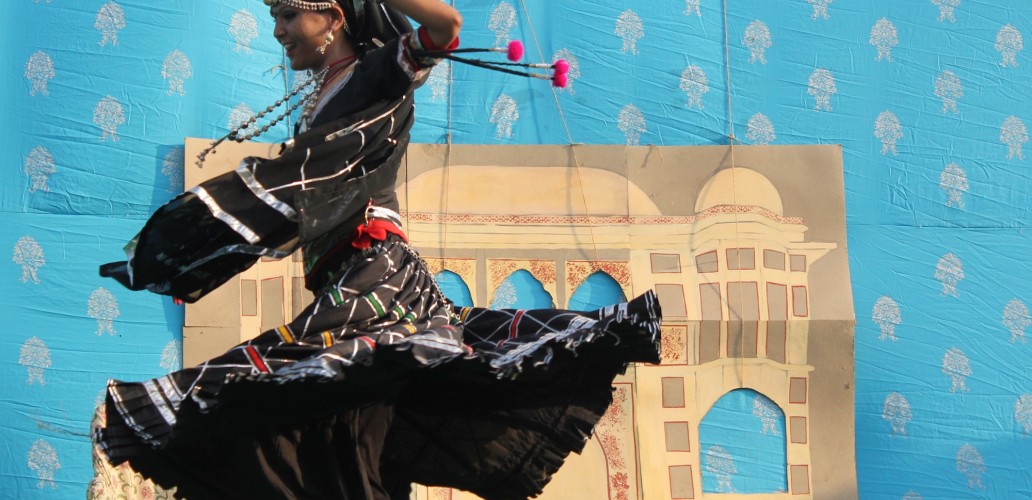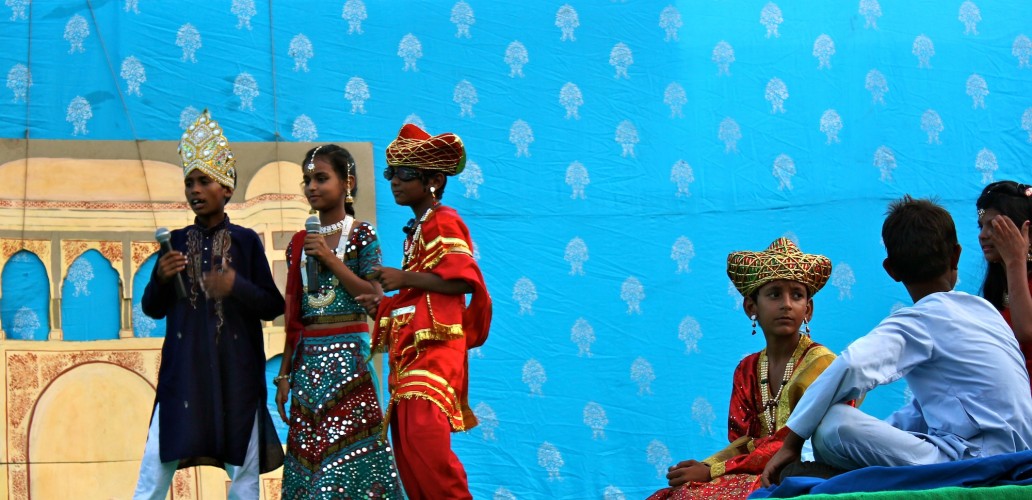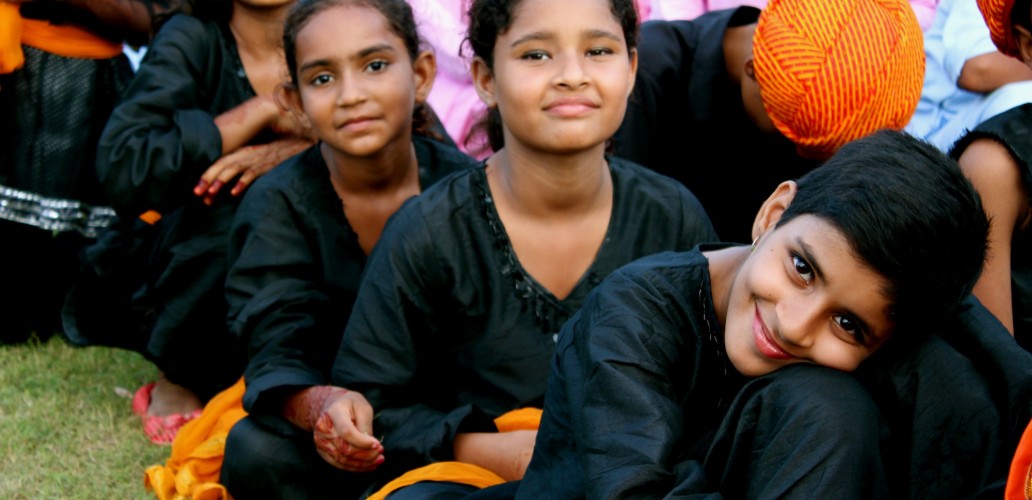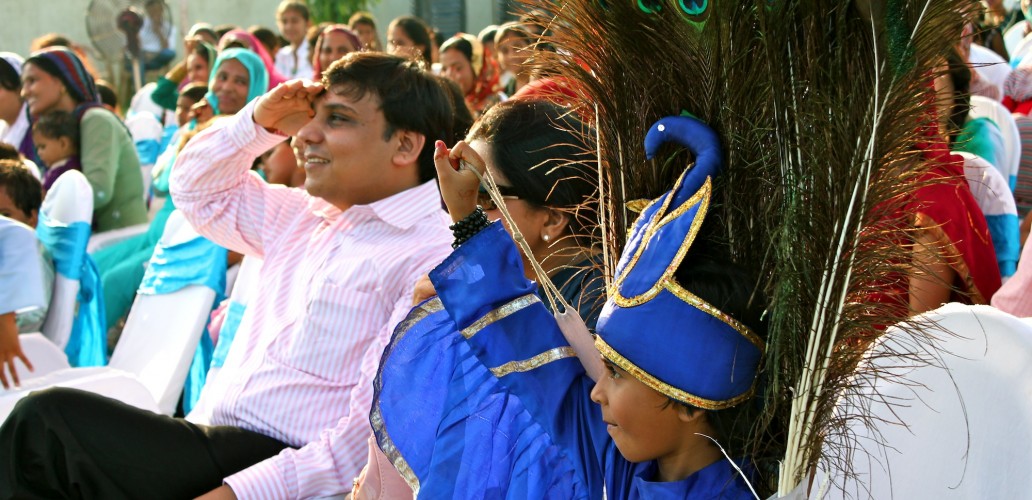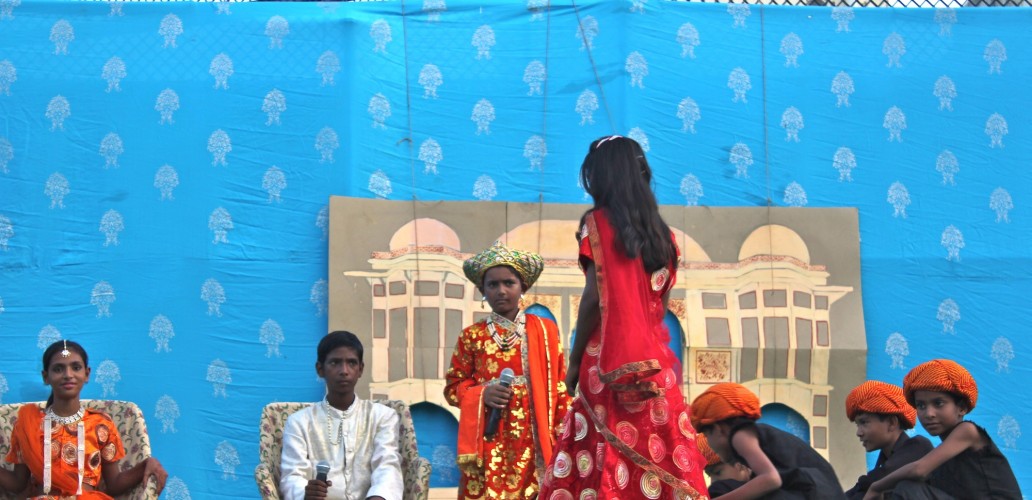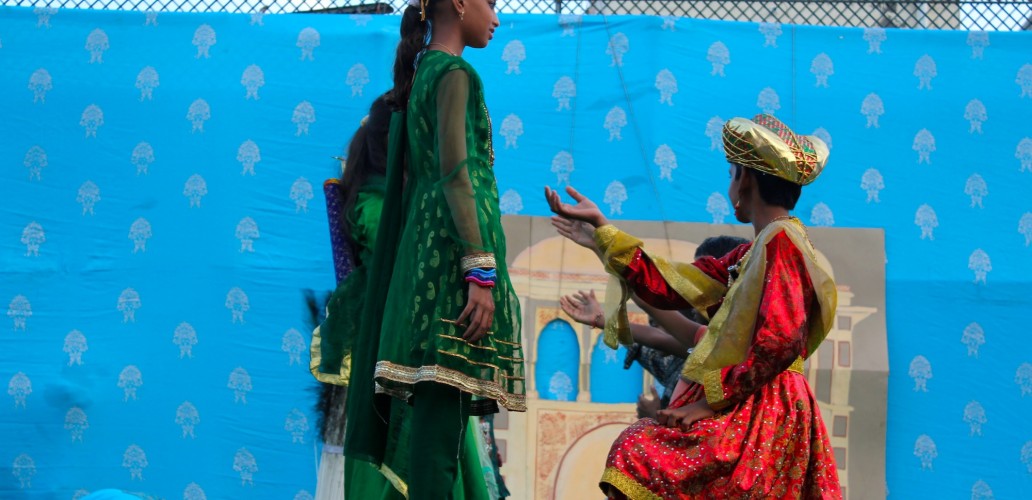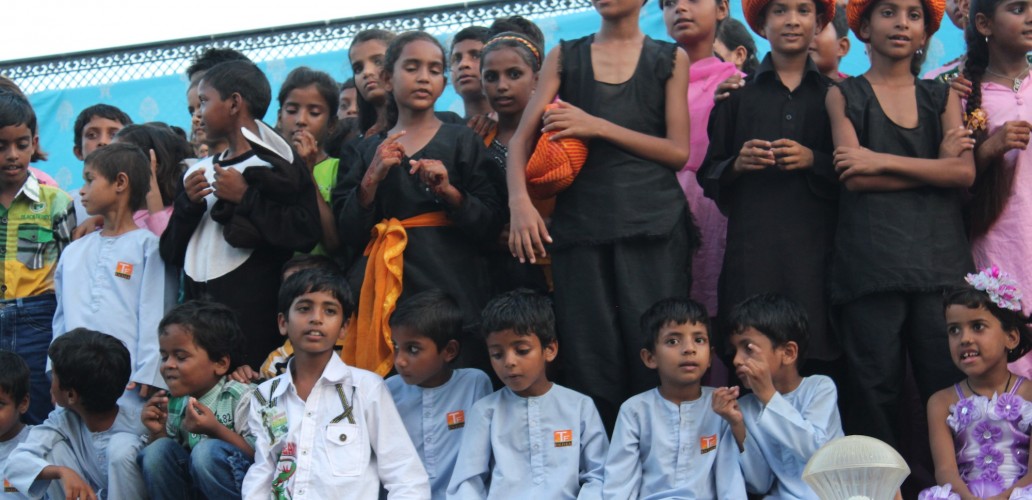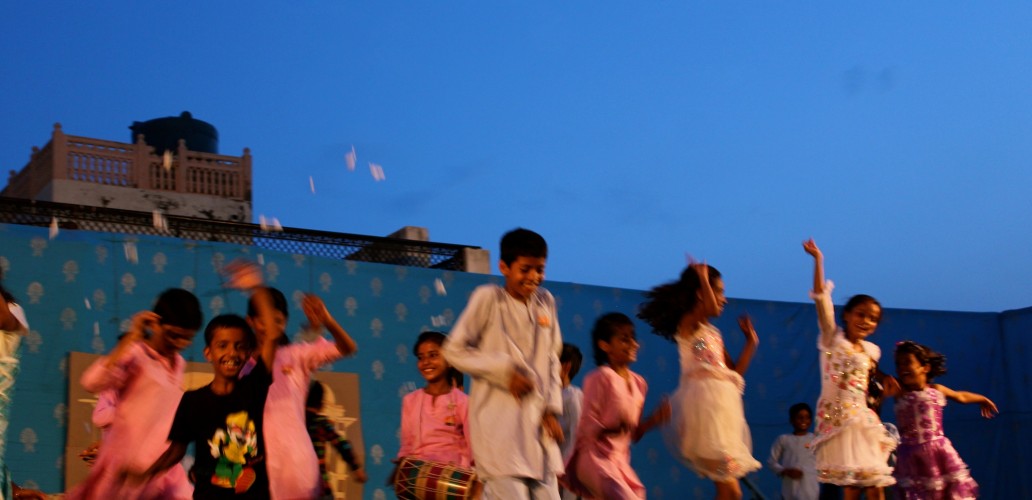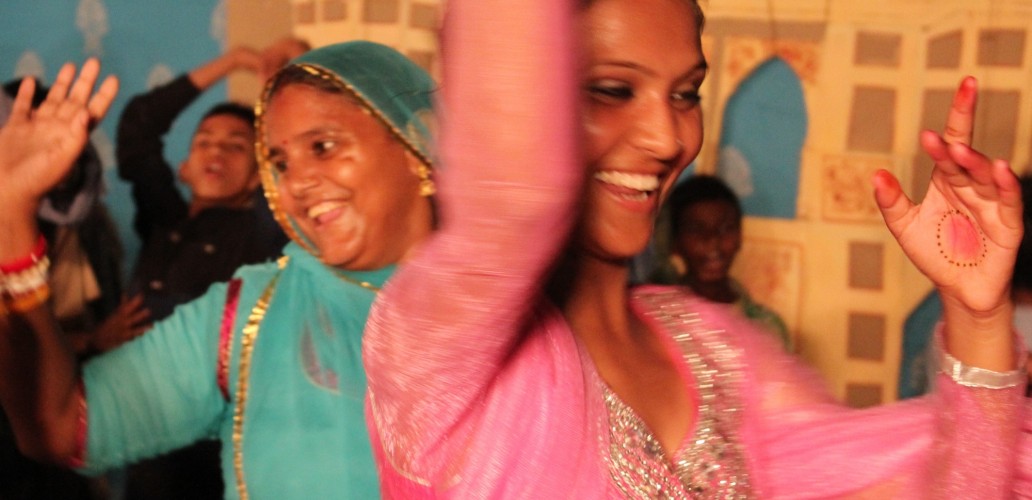Children of Amber
By Rosenda Meer
Under a leaden sky, the children of Amber arrive at the venue chosen for their first public appearance. A vast lawn, often used for marriages and public functions, has already been set up for the coming event with a stage, a music system, hundreds of chairs and a canopy above them. The excitement is palpable, all of them have invited their families to come and see the show: “The peacock and the four children”. For the past three years, the youngest in Amber, a village half an hour away from Jaipur in Rajasthan, have been coming after school to the Foundation, eager to learn some more, and to learn differently. Tushita, a destination management company specialised in cultural travel trough India provides the necessary resources. Three volunteers from France, graduates from the prestigious “Institut de Sciences Politiques” have spent their summer with the children, teaching geography, music, English… Showing an incomparable dedication and determination, Anthony, Cléo and Phelbé, in India for the first time, have had the courage to put up a play that they have written, with hundred and fifty village children that they have come to know by name. All their efforts though, would have been in vain without the vital help of the teachers at the Foundation. Payal, Priyanka, Ruksar, Ruchika and Sonam have been the golden link between the children and the play. Today, they are all dressed beautifully, eager to show their work with the children to their families, friends and neighbours. Three of them, particularly good dancers will also perform on stage. While waiting for the costumes to arrive the classes are recomposed for the official photographs. Sophia and Minnie seam to know already very well how to strike a pose.
In the merciless heat, we still pray for the rain to go away. Gajju Bana and Veenaji who run the Foundation, magicians as they are, seem to have managed to negotiate with the sky above and have obtained an exceptional dry day in monsoon weather. After drinking countless glasses of water and juices, eating bananas and biscuits, we all cheer the arrival of the costumes. Suddenly, every child steps into the fairy tale. Who are you? I keep asking the impressive characters that continuously pour out of the dressing room. “The king of Jaipur” answers proudly Pradeep, ”The Queen of the Amazon” says Minnie, all dressed in green. “I am “love me do”, states Shuhana, who takes the song she sings for a role. I am “the people of the desert” says Tania all dressed in black, who feels so bad about her short haircut. Make-up, jewellery, no minor detail is forgotten. The elders look after the younger ones, often their little sisters or little cousins. In the blazing heat, the last rehearsal has been a total disaster, no one is concentrated. “How is it possible, when yesterday they were so good?” With impassive calm, Anthony declares that the last repetition is always a flop. I keep trusting India, where countless times my western logic has been proved wrong by a mysterious magic that always makes things work out fine in the end.
Keeping the children together in separate groups is at first an impossible task, but by the time the public starts coming in, everyone is in place. Timidly, the villagers walk into their children’s space, looking around to find the one they have come for. Women are there in larger number; mothers take care of children here. They have all dressed up elegantly, as if going to a wedding, wearing their most refined saris, their most precious jewels. Once everyone is seated, the anchor, a professional who graciously decided to help, addresses the public eloquently in Hindi.
“I warmly welcome all of you who have had the curiosity and the generosity to come and see the play that the children of Amber will soon perform for you. We are all together here today to see and cheer for a beautiful future in front of us. We will see our children share what they know, what they have learned and what they have achieved together. It is not about who stands out the most, who sings the loudest who dances more graciously or who pronounces English phrases the best. It is about an interesting and moving story between the children of Amber and the Tushita Foundation. It is about their enthusiasm to come after school and do their homework, draw, sing, dance, work with foreign volunteers and learn English. It is about their teachers, who belong to this village and who care for the children to grow. It is about volunteers who come from abroad, because they received the best education in their countries and want to give some of it back to those who were not as lucky. It is about two men, two Indians, who have come countless times to the Fort right above us to bring foreign visitors, who one day wondered if the children of Amber had ever been to the Fort. Sure enough, the second visit the Tushita Foundation organized for the little ones, after the Taj Mahal, was Amber fort on elephant back.”
When Jan Meer is asked to talk, he hurries to call the children on stage saying that we are all here for them, and the show begins. Seven pretty girls, in the traditional Rajasthani Gagra Choli, a long skirt and a colourful veil swirl about in circles, beating sticks and looking utterly professional. Only at the end of the dance, when interviewed by the anchor, do their childlike smiles remind us of their young age. They are themselves astonished and so happy that all went well.
After the traditional comes a touch of modernity, the dancers are called on stage to perform “the Punjabi dance.” Ruchika and Payal, the teachers are among them. When the anchor calls anyone who wishes to be challenged with a tongue-twister, Satyam comes on stage with his belt of leaves, but his tongue falls in the trap laid down by a bunch of similar sounding Hindi words and a burst of hilarity takes over the audience. He leaves the scene, content with the result of his performance. When the little ones arrive on stage, we all melt in glee as the “Barbie girl” song makes us all shake in our seats, clap our hands and cheer, swept away by the contagious joy the children exude. At first, I fail to recognize Ruksar, in her most dramatic black and silver outfit, but I know her gift as a dancer and I am pleased to see her on stage. Kalbelia is the traditional dance the women of the desert near Jaisalmer perform around bonfires on special occasions. She has decided to put herself to the test. Everyone sitting there knows how difficult this dance is and how much energy it will take out of her. Silence falls like a drape over the audience. When the music starts the young woman slips into the rhythm, as if swept away by a strong desert wind. She swirls and stamps, falls to her knees, her skirt and veil flying around, her silver anklets clinking. Like a majestic black bird, Ruksar flies over the notes and her face shines with amazing joy. A roaring applause ends her performance and she smiles shyly. I know this means a lot to her.
By now, our appetite for the play has been wetted, Prienka and Rusksar, the narrators, introduce us to the story both in Hindi and English. “Once upon a time, in the Kingdom of Jaipur, the magic peacock had gone missing. The four children of the Royal couple decided to sail the world in search of it.” The people of the sea arrive on stage. Benji, the prince of Jaipur, wearing swimming goggles to dive and talk to them, asks the lovely queen of the see if she has seen their magic peacock. But the peacock does not live in the sea and they move on. The king and queen of the snow in white bathrobes welcome the princess of Jaipur, Maya, and ask for her help. Their son has been locked up in an iceberg by a wicked witch and they do not know how to set him free. Under a snowfall of cotton balls, Maya using a small mirror, diverts the rays of the sun towards the iceberg and melts it. The prince is free and everyone is happy. Between every scene a bunch of little children keep us entertained with the perfect English song they have learned so well, “Row, row, row your boat.” Once the royal offspring arrives in the desert, there also they are asked for help. Their King has lost the keys to the trunk where his heavy crown is stored. Princess Lakshmi with a bobby pin taken from her chignon succeeds in opening it. The dances are beautiful, both boys and girls are dressed in black and there are splashes of orange on the scene. Tania has forgotten her short haircut, Meheg has left her spectacles behind, and every child looks concentrated and confidant. I smile and wonder at what shines to me as a miracle, when I think of the same children looking at me timidly the first time we met, three years ago.
“The peacock has been seen in the desert, but it must have left to the forest” says Prince Ali and off the royal boat sails to the Amazon forest. The Amazon queen has been sleeping for a hundred years and the people of the forest ask the newcomers to do something about it. Lalsingh, the young prince of Jaipur tickles the sleeping queen’s feet and immediately she wakes up. Happily, the people of the forest give back the peacock to the royal delegation from Jaipur and all is well that ends well. Singing “Don’t worry, be happy” by Bob Marley, all the children pour to the stage and conclude the show in a fantastic celebration of togetherness. Gajju Bana speech is tinted with emotion. The children of Amber have become his and his wife, Veenaji’s children. They have worked so hard to make this dream come true, convinced of the positive role tourism can play as a bridge between cultures and a promoter of education and peace. A spirit of conviviality and fraternity lingers on, while everyone shares the vegetarian meal freshly prepared on the premises. The children and the teachers come to introduce their parents and their siblings. We are all part of a big community of humans, no matter where we are from, what language we speak, what religion we belong to. Under the starry sky of Amber, for a moment, we are all alike. In spite of the heat that keeps turning us all into moving fountains, some of the children go back on stage and start shaking graciously at the sound of Indian disco music. Soon enough everyone is infected with an irresistible desire to dance, the children forcing the slightly reluctant to join in.A benevolent full moon looks down at us, when a group of village women, their hips made heavy by many children they’ve born, decide to join in, invited by the notes of a traditional song. Through their graceful moves shine the young girls they once were, joyous bodies forgetful of their shapes. I smile at them teaching me how to age well, when the mataji, the respected mother dressed in red, pulls up my veil over my head and shows me the moves playfully. I follow her, captivated by her grace. When the evening comes slowly to an end after warm goodbyes, I find myself wondering: the twist of the tale is that we thought we were there to give something to the children of Amber, and here we are nourished and replenished, our hearts filled with so much affection and gratitude.

